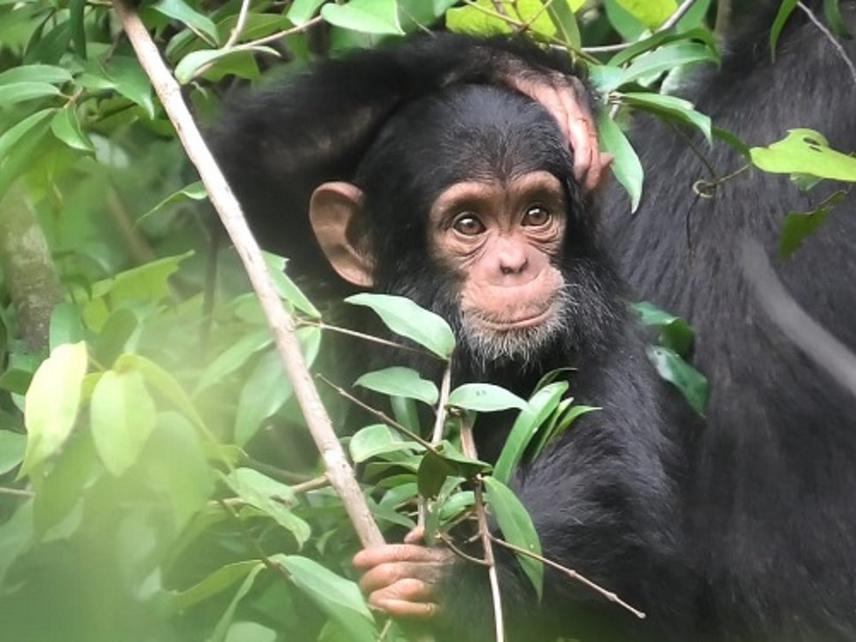Simula Maijo
Other projects
7 Jan 2019
Will Anthropogenic Activities Influence Chimpanzee Forage Species and Habitat Selection? A Case Study in the Masito-Ugalla Ecosystem, Tanzania
9 Mar 2022
Balancing Conservation Goals and Human Livelihood Needs: Beekeeping as an Incentive for Conservation of Chimpanzee Habitat in the Masito-Ugalla Ecosystem
24 Jul 2023
Scaling Up Conservation of Eastern Chimpanzee (Pan troglodytes schweinfurthii) and its Habitats in Tongwe Forest Reserves, Western Tanzania
17 Mar 2025
Promoting Beekeeping Value Chain and Conservation of the Threatened Wild Edible Orchids in Tongwe Forest Reserves, Western Tanzania
The Masito-Ugalla Ecosystem (MUE), a vast area outside national park boundaries in western Tanzania, is a habitat for the endangered eastern chimpanzee (P. t. schweinfurthii) and other countless species of flora and fauna. Despite its high ecological relevance, MUE is under increasing anthropogenic pressure due to over-dependence on nature. Over-dependence on nature by the MUE adjacent communities has negatively affected chimpanzee habitat and threatened chimpanzee populations. Yet, alternative income-generating activities have not been promoted to reduce the pressures on nature, especially forest resources. This project aims at promoting alternative and eco-friendly income-generating activities that would provide room for restoration of the threatened chimpanzee habitat. Promotion of socio-economic benefits either directly or indirectly, is key towards protecting the endangered chimpanzee and its fragile habitat.

This project originates from my previous Rufford-funded project which focused on assessing the influence of anthropogenic disturbance on chimpanzee resource availability, habitat use, and chimpanzee abundance in the Masito-Ugalla Ecosystem (MUE). During the implementation of the previous project, MUE was observed to be under various human pressures, particularly agriculture, livestock grazing, illegal logging, unsustainable beekeeping, bush fires, and poaching. The MUE adjacent communities, unsustainably clear forest for agriculture, cut certain tree species for timber, and debark certain tree species for making unsustainable local hives, actions that eventually kill trees. It is even worse because the logged and debarked trees are the dominant species that are important food and nesting resources for the chimpanzees. Logging and unsustainable beekeeping practices have threatened many tree species, especially the Pterocarpus angolensis, Pterocarpus tinctorius, Julbernadia globiflora and Brachystegia speciformis. Generally, the previous project revealed that the loss of chimpanzee plant food and nesting tree species in MUE is associated with the increasing anthropogenic disturbance. However, the quality of chimpanzee habitat, including the availability of chimpanzee plant food and nesting tree species, is critical to ensure the long-term survival of chimpanzee (Carvalho et al. 2015; Foerster et al. 2018). Similarly, anthropogenic disturbance negatively influenced chimpanzee habitat uses and abundance, a relationship that threatens the future of all chimpanzee populations outside of national park boundaries in western Tanzania.
Implementation of alternative income-generating activities particularly beekeeping and tree planting was one of priority recommendation put in the previous project. Logging and beekeeping is already strongly practiced, albeit at the cost of tree species that serves as chimpanzee food and nesting resources. So, guidance, control and tools on how to sustainably practice beekeeping activities is needed. Beekeeping and tree planting activities have shown positive impacts in threatened ecosystems, where pressures on nature have been recorded low due to an increase in income alternatively generated through selling of bee products, timber and carbon stock.
Therefore, this project aims at promoting conservation of chimpanzee habitat by discouraging anthropogenic activities that deplete chimpanzee plant food and nesting resources. People at the village level will be empowered to participate in eco-friendly income-generating activities i.e., the communities will be facilitated to actively engage in beekeeping and tree planting. This would result in long-term conservation success as local communities will be equipped with entrepreneurial skills related to apibusiness and tree planting.